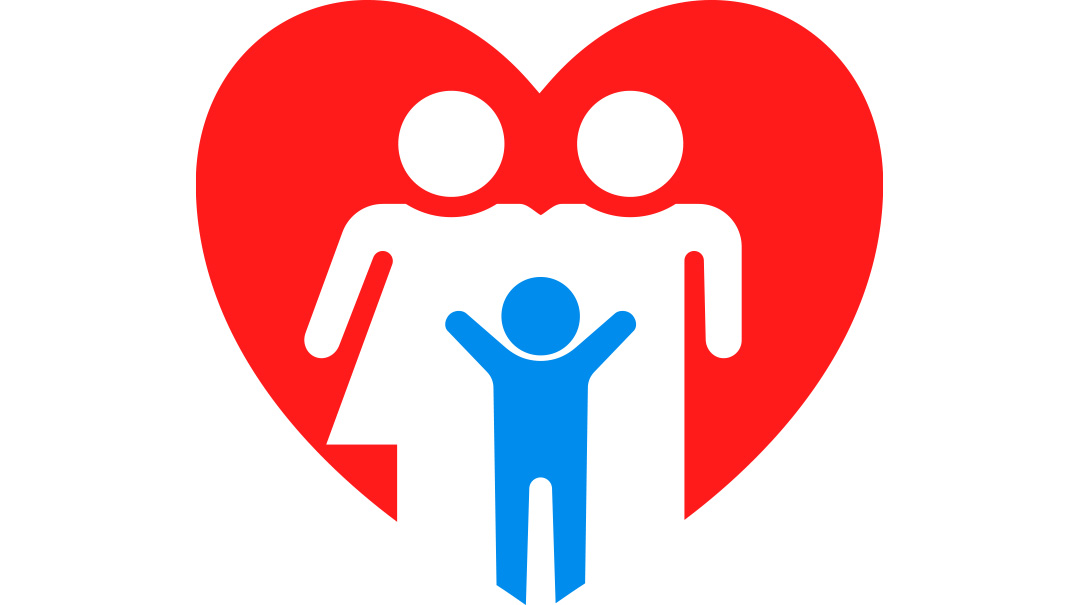Chaya Lieba’s Story
| November 22, 2022I was in way over my head, yet I kept letting others down

Dr. Chaya Lieba Kobernick is a licensed clinical psychologist and the founder and director of The CBT/DBT Center. Along with her team of clinicians, Dr. Kobernick offers individual therapy and group therapy for children, teens, and adults. The center also provides various courses with the goal of bringing proven therapeutic modalities to the community.
People sometimes ask me how I do it — I’m a young mom to five cute little (perfect?) beings under the age of six, an entrepreneur with a therapy practice serving clients around the world, and an olah chadashah.
The honest truth? I’m not really sure what “doing it” means in your book, but I’ll share with you what my version of it looks like and how I got there.
My husband and I had always dreamed of making aliyah. For a while, it was never the “right time.” We got married, I was still in school, and then our family grew quickly, baruch Hashem. Two weeks after I had twins, I was taking grad school finals. My husband had to come and bring along the twins so that I could feed them in between exams. Life was hectic, and our dream remained a dream.
But finally, in 2020, as Covid started to spread, my husband and I decided that if we were ever going to go for it, now was the time. I actually had a crying session when the pandemic first broke out, fearful that, after all this time, Mashiach was going to get to Eretz Yisrael before I was.
For someone who’s never done it, “making aliyah” sounds like the big trip of moving to another country. Anyone who’s done it, however, will know that pulling off aliyah when you have a bunch of little kids is quite a feat, particularly when every government office you need is closed to the public. (And when all your documents get stolen by a car thief, things just get a bit messier… but that’s a story for another time.)
Then, just as we arrived in the land we loved, Covid hit hard. I’d thought I’d need to close my therapy practice when we moved to Israel, but because of the pandemic, I was able to pivot my business to a fully virtual model, continuing to serve my clients in New York. Unfortunately, this meant I didn’t get any break from work (I think I took three days off the week we moved.)
And then I found out I was expecting my fifth child, ka”h. I was overwhelmed by the new pregnancy, had just moved to another country, had four kids adjusting to new everything, and was involved in an entirely new business model. It was a lot.
Too Much to Manage
I’ve always had a need to do the “right” thing in others’ eyes. I have a strong “truth-seeker” gene combined with a propensity for people-pleasing, that in combination don’t always do me well. From a young age, I wanted to be “okay” in everyone’s eyes. Not that I needed everyone to be my best friend or even like me, I just needed them to approve and think I was “okay” — whatever that meant. I needed to know that my choices made sense to me and to the people around me. I knew that life certainly has challenges, and I had to accept that, but I believed they had to be challenges that made sense.
Until it just didn’t make sense anymore.
I didn’t want my clients to lose out, and I thought waking up early would be better for me than going to sleep late, so I was waking up very early three nights per week to see clients and run DBT groups during EST evening hours.
I couldn’t find consistent cleaning or babysitting help, and hadn’t helped my own mother enough growing up to know how to manage a household of this many people (I must have been reading books or writing poetry or playing the drums or something like that….) I was learning how to run a virtual, expanding practice and was on call 24/6 for my clients as a DBT therapist. I’d studied psychology, not business management or marketing, and I was struggling to figure out the business end in order to keep up with my ideals and aspirations. I couldn’t find an assistant and I couldn’t find a housekeeper, and was in desperate need of both. Did I mention I was expecting?
What I found hardest of all was not the stress or the juggling of the different pieces — I’ve got self-care habits and time management strategies that help with that. The hardest part for me was justifying myself to people. Why couldn’t I just wash my own dishes? Why did I stop answering the phone for friends and family? What mother couldn’t handle mornings with her kids? Why did I have to cancel sessions because I was sick so often? Other families in Israel don’t get so much help, why did we need so much help?
I was in way over my head, trying desperately to meet the needs of my family and my clients, and I found myself letting others down. It was getting harder and harder to explain myself, justify my actions, and make it all fit together somehow.
I knew I was buckling under the pressure of everything I was dealing with: the new environment, the new business model, and trying to raise my family. But what choice did I have? I desperately needed to keep doing what I was “supposed to do” to keep everyone happy, so I’d push myself out of bed and go deliver 110 percent to everyone in my life.
Everyone except for me.
In DBT, we have a concept called “Observing and Communicating Limits.” Observing your limits means checking in with that intuitive part of yourself that knows what you truly need. And after you observe what isn’t working, step two is communicating those limits to the people around you.
When I looked at myself through an honest lens, I saw that, while I was observing what was and wasn’t working, I was struggling to communicate my limits. I was scared there wasn’t really any way to say “no” while keeping my family and clients okay. You can’t say no to dinner or laundry or regularly scheduled therapy sessions. Practically speaking, where did the “no” fit in?
I finally realized I had to start honoring myself at least as much as I was honoring everyone around me. It was a significant step beyond self-care. It was, “If you don’t figure out how to listen to your needs and communicate your limits now, there will be no jug to fill, let alone something to pour. If you keep pushing yourself to do the ‘right’ thing in everyone else’s eyes, there’ll be no Chaya Lieba left.”
Making Change
It was a slow process — I wasn’t able to change things overnight. Observing your limits is step one. Step two — communicating those limits and putting them into practice — takes time. But slowly, I started changing one thing at a time, bravely laying down the adjustments that made sense to me.
It was grueling at first. Just figuring out what I truly needed was hard — I wasn’t used to listening to that part of myself. I felt like I was breaking something inside of me each time I set my limits. And I was — I was breaking my need for everyone to see that I did it all correctly, that I could do everything, that I had all the logical arguments in place and everything under control. I learned to settle for ME being happy with me, because sometimes that’s just the best we can do.
One of my favorite examples of when I felt this concretize in myself was when I was able to finally step away from one of my DBT groups that was scheduled verrrrrry late at night. I knew the timing wasn’t working well for me, and I was ready to let it go, but putting that knowledge into practice took time. Once I had staff trained to take over, I moved from observing my wants to actually communicating and actualizing them. And now I don’t work later than one a.m., and that’s something I’ve worked hard on and am really proud of.
The End in Sight
The process hasn’t always been smooth. It’s meant consistently asking my intuitive self what I need, and then figuring out creative ways to respect that and make it a reality. Ultimately, I learned that it doesn’t matter if I don’t have all the answers and justifications. People can question me and my choices. And I might not always be able to explain myself. And you know something? That’s fine. It’s nice to be able to have neat explanations, but sometimes I don’t, and that’s okay. My choice does not have to be “okay-ed” by anyone else in order for it to be the right choice for me.
Overall, the people in my life respected my humanness and adjusted to my limits. They survived my nos, appreciated my inner strength, and adjusted to what I could and couldn’t give. And as I prioritized my own needs, I felt better and could manage disappointing others with a lot more peace of mind.
Now, I work three days a week, and I try to be strict about that. We found consistent cleaning help two days a week and regularly recruit the very best teens to help with the kids. I’m raising my family in a way that works for us… most days, and living a life that fits with my limits and strengths and values, and that I enjoy. I have the best right-hand-woman as my assistant and client care coordinator; she keeps my priorities in check and cheers all of us on. I’m growing my practice in a way that excites me and challenges me without overwhelming me. I think critically about sessions I’m less than proud of, seek consultation and training, and know that I still might not get it right next time, either.
And for anyone that doesn’t sit well with… that is what it is. I made peace with that, and instead of worrying about whether others are happy with the way I’m doing things, I just keep doing my very best. We have five very cute children and a couch covered in mostly-clean-laundry. That might not be the world’s definition of success, but right now, it’s mine. It’s working, and I’m happy — what more could I ask for?
What I’d Tell My Younger Self:
You’re not responsible for anyone else’s emotions. If a decision you make leaves someone else anxious or frustrated, that doesn’t make it your responsibility to change your choice. You can, of course, feel bad that you affected them in that way, but it’s not your responsibility to make your choices based on their feelings.
You have to make the choices that work for you. And the more you’re okay with your own humanness and not being able to justify your every move, the more everyone around you will be okay with it too. The more you observe, accept, and communicate your own limits, the more others will listen and adjust, and the happier you’ll be. And the stronger and happier you are, the more you can serve your clients and community and the more you can be there for your family.
Fay’s Take:
What I loved most about what Chaya Lieba shared is that as soon as she herself came to a place of peace with her own limits, she found that most people around her molded themselves accordingly.
When you change your thoughts, your beliefs, and your perspectives, you truly change your reality. That statement isn’t fluff, it’s extremely practical and tangible — we just have to be sensitive enough to realize it. But how does it actually work? How can what’s going on in our inner world change our reality?
One of the powerful ways in which this works is what I call the “mirror effect.”
We’re a lot more transparent than we sometimes like to think we are. People can sense what we feel inside, they can sense what we believe, and they respond accordingly.
The world is truly our mirror.
When you accept a part of yourself, others will come to accept it as well. If you yourself are having trouble accepting something inside of you, you’ll find others around you pushing back against it as well.
When you do inner work to reframe a fear you’ve held for a long time, develop deeper self-worth and inner confidence, or “reprogram” a belief that is no longer serving you, you’re becoming stronger inside. And the stronger you are inside, the more others sense that strength.
If you make a decision, but are inwardly doubting yourself, you may find that others around you second-guess you as well. But if you make a decision from a place of conviction, you’ll often find that people somehow just accept it.
If you decide to charge a certain amount of money, but don’t really feel confident about charging that much, you may find that others question your price or are unwilling to pay it. But when you charge an amount you’re confident about, you’ll often find that agreeing to your price feels like a “no brainer” for the client, too.
It almost feels like some sort of magic trick, until you recognize the simple and powerful truth:
The world is your mirror.
Biggest challenge I faced growing my practice:
Learning to make snap decisions without running it by anyone else. I have to make multiple big decisions daily that relate to treatment, employment, finances, and more, oh my! I don’t always have the time to discuss things with a mentor like I used to, and so often I’m just giving my best guesses, davening, and taking detailed notes from my mistakes.
The book I’ve read the most times and why:
Sara Yocheved Rigler’s Emunah with Love and Chicken Soup. Rebbetzin Henny Machlis is such an inspiration for me, and I always get chizzuk from reading that book. My husband reminds me, though, that if I want to have 100-150 guests per week, we can totally do it, but we’ll need to use disposables, and I’m not willing to go there just yet.
One mantra that keeps me going:
“Sleep. Now.” Just a little reminder that I write on post-its and stick everywhere 😉
The best part about virtual therapy:
Fuzzy socks. And getting to put up the chicken soup between sessions. And I also love being able to have my client and all of my handouts and notes in front of me at the same time.
Fay Dworetsky is a mindset coach who helps women work from the inside-out to open up to so much more possibility, expansion, and abundance — both in their businesses and in their lives.
(Originally featured in Family First, Issue 819)
Oops! We could not locate your form.







